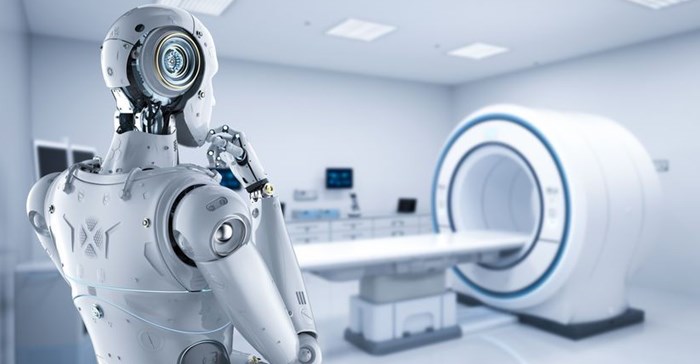
While introducing AI into the physical recovery environment may sound counter-intuitive, the transformative shift towards a more connected and digitally driven ecosystem, in fact, represents an opportunity.
It should be embraced, not feared, as leveraging the power of AI to optimise patient recovery plans, offers practitioners and patients alike, a seamless integration of virtual and physical realms that delivers real-time benefits for all.
I recently attended a conference at which American Medical Association president, Jesse Ehrenfeld, managing director, stated: "It is clear to me that AI will never replace physicians — but physicians who use AI will replace those who don't."
Although Ehrenfeld was referencing the need for AI to work in companionship with human beings and the consequences of allowing AI to be the primary driver, the point is clear – it’s here to stay.
This was further underlined by South Africa’s Unben Pillay at this year’s Smart Health Summit of 2023, who said: “Technology-based interventions will benefit everyone but, notably, those in access-constrained settings will gain to the greatest extent. Our ability to collect, share and analyse data will allow us to develop targeted solutions that optimise and limit the wasteful use of our limited resources.”
There’s a lot of fear around the words ‘Artificial Intelligence’ in the healthcare space. From doctors fearing they will be replaced by algorithms and data as primary diagnostic tools, to the patients themselves having concerns they will no longer be communicating with an empathetic human.
However, I see it differently and agree with Ehrenfeld, unless we all embrace this shift, we will be left behind and become irrelevant.
AI is no longer a buzzword in this space; it is a transformative force that can revolutionise the way we approach patient recovery. General practitioners (GPs), orthopaedic specialists, sports scientists, and other allied healthcare practitioners (HCPs) alike, can now create personalised muscular skeletal (MSK) rehabilitation programmes tailored to each patient's unique needs, that the patient herself can perform at home – at her convenience.
AI is an enabler to the practitioner-determined programme, as it monitors the patient’s compliance and quality of execution of the programme at home, gathers and then reports the data to the healthcare providers, to help them make quicker decisions, adjust the course of care, and also to quickly get a view of how the patient is progressing or if there are any red flags that need to be addressed.
Naysayers of at-home programmes will no doubt reference the plethora of home-gym- and exercise subscriptions that are never, or only partially used to illustrate their scepticism as to the success of out-of-practice rehabilitation programmes. Indeed, it has been shown that less than 75% of people complete their prescribed and needed physio sessions, and less than 80% of people ever start their home programme let alone finish it.
This is reinforced by Heidi Jannenga, the president and co-founder of WebPT, who shares that: “approximately 20% of physiotherapy patients drop out of treatment within the first three visits.”
The answer then, lies in a hybrid approach to physical recovery – one that combines the physical and virtual worlds, and because AI learns fast, programmes and platforms have already been developed to allow for the vagaries of the human condition, plus, as we have already experienced, it is the partnership between machine and man that is the winning combination.
Patient surveys from the United States, where augmented recovery programmes have taken off, show that 60% of the 900 patients monitored over a 12-month period, recovered significantly quicker when using a combination of virtual physical recovery in combination with their face-to-face visits, as compared to those who did not. Furthermore, there was a 50% reduction in pain and a 90% increase in satisfaction scores.
Some of the obvious concerns for patients not going through with home recovery, revolve around whether they are doing their exercises correctly or not. This is where AI really comes into its own, as patients and practitioners do not have the time to see each other face-to-face every day to alleviate these sorts of concerns. Not to mention that it becomes a costly exercise for the patient.
Using neural networks and the patient’s mobile phone’s camera, augmented recovery programmes track and monitor progress and securely record the data, ready for review by the practitioner. In-app two-way text messages are also more convenient and affordable, complemented with in-app voice and video calls where needed.
From predictive analytics to real-time monitoring, AI enables practitioners to make data-driven decisions, ensuring that patients receive the most effective and efficient care.
In embracing the virtual physical-recovery paradigm, practitioners open doors to a realm of possibilities. AI-powered solutions go beyond patient care; they empower practitioners to streamline their operations, enhance efficiency, and ultimately grow their businesses.
Through automated administrative tasks, data analysis, and personalised patient insights, they also enable healthcare professionals to focus more on what truly matters – delivering exceptional care to their patients.
Critically, AI and virtual physical recovery programmes, also have a place in proactive and preventative care not just reactive and curative.
AI-driven solutions aim to enhance patient outcomes, optimise recovery processes, and support practitioners in growing their businesses. By adopting sooner rather than later, healthcare professionals not only stay ahead of the curve but also contribute to a future where patient care is elevated through the seamless integration of technology and personalised recovery plans.